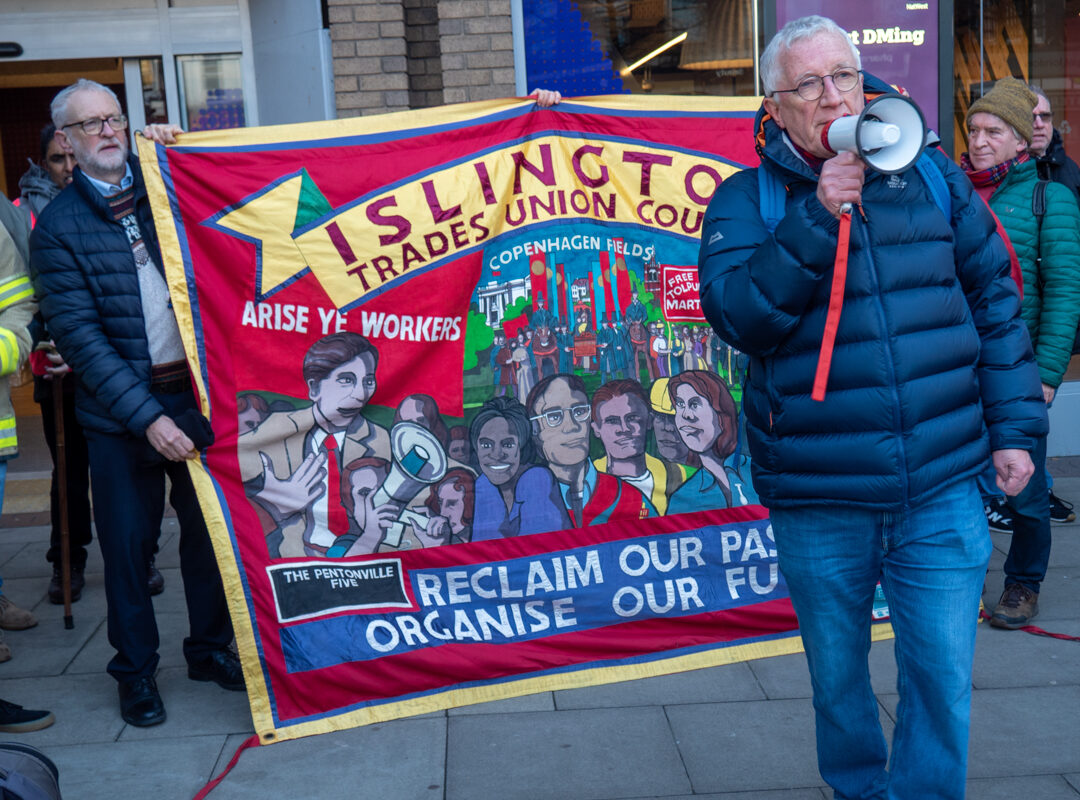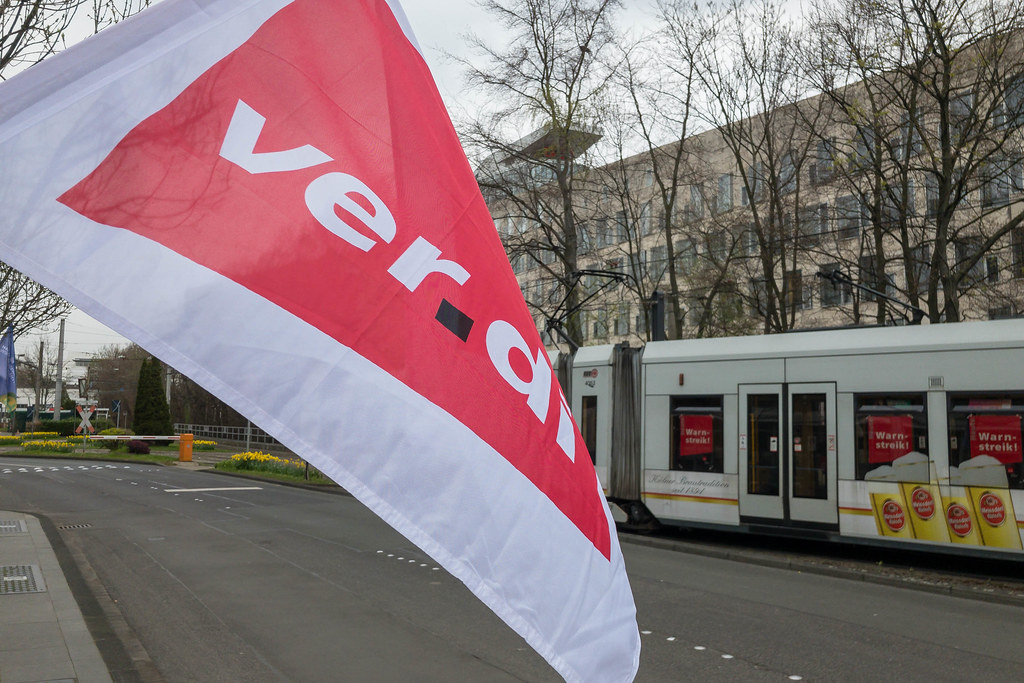From a foreign perspective, it would seem as if Britain is having a uniquely terrible time. A large number of separate issues have coalesced and condensed into a perfect storm of societal anger, economic discontent and anti-government action. The wave of strikes are the backbone of this perfect storm – one of the few remaining ways to stand up to a government seen as incompetent, hostile, and lacking any authority.
There is the ballooning inflation and energy prices resulting in an entrenched cost of living crisis. There is the discontent resulting from a clumsy Brexit that has seen supply chains disrupted at a level unseen by any other country in Europe, with lines of lorries stuck at Dover.
Most of all, there is the total disdain for the Tory government that has, since the Brexit referendum, clattered as if in a stupor from one sleazy scandal to another, from one unelected Prime Minister to the other, from one state of delusion to a newer, deeper state of farcical inability to maintain any shred of respectability.
The scandal surrounding Chris Pincher, whose sexual harassment allegations were disregarded by former PM Boris Johnson when he appointed him as Deputy Chief Whip, brought down the short-lived government formed in 2019 and continues to be investigated.
Speaking of short-lived, Johnson was followed by the now- infamous Liz Truss, whose plan to cut benefits and increase bankers’ bonuses in her “mini-budget” crashed the value of the pound in an already contracting economy and resulted in a “moron premium” being imposed by investors on the yield of government bond transactions. Her reign lasted 44 days. It was barely enough time to see the death of Elizabeth II in a moment that seemed horribly symbolic of the total collapse of British national self-confidence.
The last and current Prime Minister, Rishi Sunak, have had free rein over the fragile economy despite having never faced a general election. Astronomical energy prices, inept governance and dire economic recession have produced an atmosphere to rival the legendary “winter of discontent”, a wave of strikes that shut down Britain in 1978-9 in response to the failure to control inflation. Here, a similar climate under a far more unfit government has seen the British strike movement surge in momentum.
The first of these major strikes came in June of 2022 with one of the quickest-growing unions, the RMT (Rail, Maritime and Transport Workers), voted to strike over pay that failed to match the rate of inflation, threatened redundancies and proposed reforms that would dramatically cut staff numbers. These strikes have had a revitalised union leadership and a sense of momentum.
At a time when the government was transitioning between the barely-concealed corruption of Boris Johnson’s reign to the unelected and uncharismatic Truss administration, the General Secretary of the RMT, Mick Lynch, appeared frequently in interviews and gave the strike movement a much-needed shot of plain-speaking charisma and blunt anti-government appeal.
Since then, other union leaders have risen to prominence – Pat Cullen of the RCN (Royal College of Nursing) has been a similar figure of widespread appeal, representing nearly half a million medical professionals in her negotiations and boasting massive public support in comparison to the plummeting popularity of the current government.
Strikes have been coming thick and fast – starting with the railway worker strikes, Britain has now seen bus network strikes as part of the wider Unite union, strikes of barristers in the Criminal Bar Association, nursing and ambulance worker strikes, ongoing strikes of teachers in the NEU (National Education Union) and further action on behalf of the EIS (Education Institute of Scotland).
The late summer saw a waste pile up in Edinburgh as refuse workers took action too. Firefighters have planned strike action approaching, postal workers have been on the picket lines, and even journalists at the BBC have walked out over planned cuts. Will more be announced by the time this article is released? Probably.
The simple truth is that Britain is at breaking point in its public services and the government is not equipped to deal with it. A single article just isn’t enough to list the grievances behind each strike, of which there have now been more than a dozen, but they all stem from the same matrix of factors. There’s the historically low pay, that has stagnated since the Conservative policy of economic austerity implemented after the 2008 financial crisis, compounding the cuts to public services and pay freezes that were introduced.
There’s the failure of pay rises to keep up with explosive inflation hitting a high of 10.7% that many blame on government ineptitude. There’s the ongoing cost of living crisis and the related energy crisis that have made the simple costs of living and working in Britain go up while incomes fall by 4% on average. These are pressures that are breaking the backs of staff in the public sector, many of whom are already working unbelievable hours, such as medical professionals.
And who else can working people really blame but the government? Britain has been in the hands of the Conservative Party for 12 years now, through the disaster of Brexit, the constant political scandals, the collapsing benefits system, and despite government attempts to blame the war in Ukraine for the ongoing crisis, Britain has recently been forecast by the IMF to be the only G7 country to see continuing recession this year. Even Germany, with its intricate ties to the energy crisis, is forecast to see growth in 2023, but not Britain. Democratic governance is a two-way street. The public expects appropriate leadership in exchange for their support during the stresses of the past few years and responsibility for this crisis cannot be avoided by the current occupants of Downing Street, who refuse to call a general election despite the public having had no say in the country’s past two leaders or any check on their policies or power.
Why, with so much anger from different sources, have strikes been the way that Britain’s working class have expressed their hostility towards an openly contemptuous government? Sadly, it’s of the only ways left. The Conservatives have systematically introduced laws like the 2022 Policing Bill to combat protest action and have tried to clamp down on strikes with the 2016 Trade Union Act, limiting the ability of unions to call strikes.
But causing economic harm is also one of the only ways to make the government – accused by union leaders of refusing to listen – actually sit up and negotiate, although there has been little success so far. Barely a week ago, Tory minister Huw Merriman admitted that acquiescing to striking rail worker demands would have been more economically beneficial than allowing strikes to continue.
The minister for safeguarding, Rachel McLean, has called on people to simply “get better jobs”.Rishi Sunak and his party refuse to appear weak in the wake of two recently collapsed governments, even if that would ease this economic struggle.
It seems hard to concede that this standoff between underpaid and suppressed workers and an unelected government that refuses to appear weak will continue until the next general election in 2025. However, the pressures on public sector workers are immense. The attitude of the Conservative Party is one a constant state of defensiveness and hostility towards strikes following recent disasters that have demolished its reputation and left it trailing in polls behind Labour. With both sides so entrenched, this battle seems set to continue well into 2023.
From a German perspective, these issues would seem to largely stem from the unique characteristics of the British Parliament, which allows enormous changes in policy and personnel without real public accountability, making it a situation that wouldn’t be as likely to happen in Berlin. That being said, anger and unrest against a government that fails to live up to its promises is nothing new or unique to the UK. In these times of economic uncertainty and international instability, the German government could do well to use Britain as an example to be avoided.




